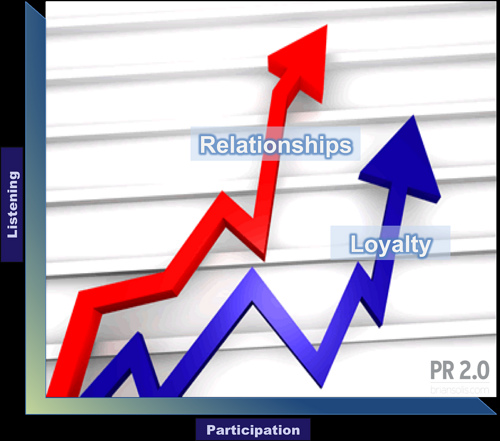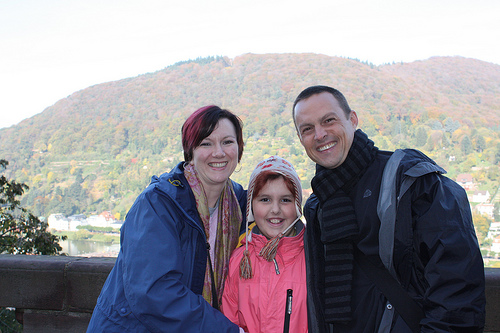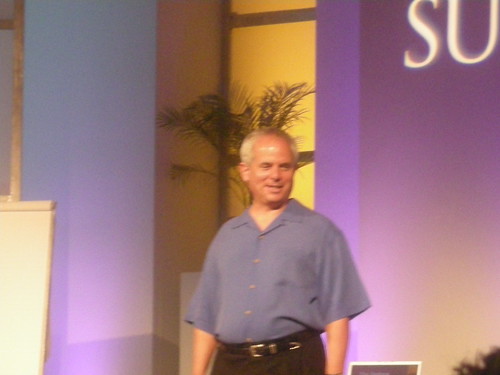When there is an addict or alcoholic in the home all sense of peace is lost. Drugs, alcohol, and the emotional turmoil that comes with substance abuse take center stage. Family members either act as if nothing is happening or fly into irrational rages while desperately searching for something to control. By the time the drug abuser is discovered, in some ways it is already too late. Without intervention the problem will probably get worse. It is rare that an addict or alcoholic wakes up one day and suddenly decides to mend his ways. He may make promises along these lines but that is usually to avoid potential consequences, not because of a sudden change in heart. Loved ones are left confused and scared, having little awareness of where to turn. Parents of addicts need tools after their son or daughter enters recovery. Abstinence does not solve all the problems created by drug abuse. With the right help parents are able to become a part of the solution while healing emotionally.
Uncategorized
How To Cope With Emotional Turmoil With An Addict Or Alcoholic
Youth at Risk In Today’s World
It is not uncommon to hear stories about “at risk youth.” The term is often used but at times misunderstood. There are so many circumstances that put young people in potentially dangerous situations that in some ways young people are “at risk” all the time. Normally, parents compare what teenagers experience today through the lens of their own life but today’s world is a very different place. Every generation has its version of “these young people just don’t get it” but in reality things have changed significantly in the past three decades.
Guidance For Parents In Substance Abuse Recovery
The second step in Enthusiastic Sobriety is: We found it necessary to stick with winners in order to grow. For young people in recovery, the reason for this statement to be an actual step is obvious. Young addicts and alcoholics are very peer driven. If they aren’t around other sober young people they are likely to use again. What isn’t as clear is the degree to which adults are affected by the opinions of other grown-ups. Some of the worst advice parents get on how to deal with a drug abusing child comes from other well intentioned parents.
Good Intention Is Not Necessarily Good Advice
Most people are very willing to give advice to parents who are struggling with a troubled child. This is especially true if the kid in question has a drug or alcohol problem. It seems that everyone has either experienced substance abuse issues or at least knows someone who has. These experiences can be helpful but are often a hindrance. When a family is in the midst of a crisis centered on drug abuse what they need most is sound guidance. Where counsel comes from is important. Emotionally driven anecdotal tips do little good. For a plan of action a parent should consult an expert. The combination of professional counsel and empathetic support from parents who have been in a similar situation lay the foundation for a solid program of recovery.
You Are Not Alone
Having a child struggling with drug and alcohol problems does not make a parent a failure. Asking for help can be extremely difficult. The fear of judgment or the idea that somehow you have caused the problem leads to despair and isolation. There are people who understand exactly how it feels to be in this situation. Those who have found recovery have a responsibility to share what they have done to get better. Parents in need of help don’t know where to turn. There is an endless supply of irrational recommendations available. Most people in search of help have been misguided at some point. Not everyone can be expected to understand what it is like to deal with a substance abuse issue. “Sticking with winners” is a powerful tool parents can use to find help and to not feel so crazy.
Those Who Serve Are Responsible
It is difficult to realize that no one else is, or can be, responsible for your happiness. Although you may convince yourself that it is impossible to feel complete without the link to specific individuals, it is this system of beliefs that will limit you from reaching your potential.
You always have something to give. Your perceptions, experiences, and wisdom carry the power and insight to change the world. When you share your knowledge with others, the bond you create is lasting. It is the person who sits and waits to be served who is always left disappointed and unfulfilled.

Here are some simple steps you can use to realize your power and positively change your relationships (no matter how down on yourself you may be):
- Write down your area of expertise. (If there is more than one, great! If you can’t think of one, write down the first thing that comes to mind.)
- Write down someone you know who could benefit from your knowledge. (If not one individual, perhaps a group you could help.)
- Commit to a time and develop a plan as to how you will sit down and share with this person (or group.)
Keep this really simple. Chances are, the person you could help the most is around you all of the time. Remember it is about you giving. Don’t concern yourself with how you are received; it is none of your business what others think of you. Build your relationships on your own terms. Begin with an attitude of service and you will immediately feel better about yourself and the gifts you came to share.
Intellect Over Emotion: Successful Business Relationships

As an employer, I depend upon my employees having a 100 percent commitment to their jobs. They depend on me having a 100 percent commitment to mine. As a result of these commitments, we have strong work relationships.
A successful business is built on strong relationships.
Whether it is the employer to employee, co-worker to co-worker, or the business’ relationship with its clients, a business cannot succeed without all of these relationships functioning in a positive manner.
A business relationships’ success is predicated on an individual’s ability to be 100 percent committed to it. If the relationship was viewed as 50/50, one party would be in a position to do nothing but react to what the other party is doing. When people are reactive, their emotions are overriding their intellect. As a result of this dynamic, solid decisions are more difficult to make.
Intellect before emotion!
Business relationships sometimes begin as a result of emotional attraction. However, an honest assessment of compatibility must be made. As in any other relationship, the emotions are only one consideration. Here are some simple questions to answer when evaluating a business, or any other, relationship:
- What value do I bring to the other person, what do I have to offer?
- What value does the other person offer me?
- How will this partnership benefit everyone involved?
Having the ability to answer these questions honestly will have a dramatic affect on your success. Any relationship should provide benefits to all involved parties.
Achieving a balance between emotional motivation and sound judgement is a challenge. Without finding this balance it is difficult to build and maintain relationships that have merit. Take the time to think through why you are involving yourself with something or someone. Know what your values are and stick by them. In your business and personal life these attributes will benefit you.
Share the Gratitude

Last year I got the idea to write a weekly gratitude post on my blog leading up to Thanksgiving. I read about it on another blog and loved the idea. Sandra Dodd joined me, and this year I would love as many people to participate as possible. Let’s link up our blogs and share the gratitude.
Do whatever feels good to you, what I am going to do is post 5 things I am grateful for every Wednesday leading up to Thanksgiving. It’s a fun tradition I hope you will share with me! So here I go:
- I am grateful for my wonderful family
- I am grateful I get to participate in so many groups
- I am grateful I have so much support from friends
- I am grateful I live in Georgia and get to experience these beautiful fall days
- I am grateful I get so many opportunities for adventure
It is a joy to share my gratitude with as many people as possible. I look forward to reading everything you share!
With Gratitude, Cynicism is Unnecessary
 This is a very significant week for me. While on family vacation, I am celebrating the anniversary of entering drug and alcohol recovery twenty-three years ago. Although much time has passed, the gratitude I feel today is far more significant than in the past.
This is a very significant week for me. While on family vacation, I am celebrating the anniversary of entering drug and alcohol recovery twenty-three years ago. Although much time has passed, the gratitude I feel today is far more significant than in the past.
As I reflect on the importance of this occasion, I realize one of the biggest changes in my life is the reduction in my negativity and cynicism. There was a time that I believed cynicism and skepticism allowed me to stay protected. In reality, carrying theses attitudes into all aspects of my life made me lonely. I found it next to impossible to connect with people since I was constantly wondering how people would try to take advantage of me. Today I look for opportunities to form new relationships. The biggest reason: maintaining an attitude of gratitude.
I suggest for anyone who wants an attitude adjustment to spend a couple of minutes a day reflecting on gratitude. Just think of five to ten things. Perhaps keep a gratitude journal. Here are some examples of what I am grateful for:
- I’m grateful I have a beautiful family today
- I’m grateful to be surrounded by loving and supportive people
- I’m grateful to have found a way of living that provides me with constant opportunities to grow as a person
- I’m grateful my outlook on life has become more positive
- I’m grateful to have found a connection with a Higher Power
This is an exercise I practice every day. It is a crucial part of maintaining the perspective I want. If you are able to create and maintain an attitude of gratitude, you will notice a tremendous difference in how you face each day.
The Adolescent Challenge
If you are interested, this is a link to a post I wrote about adolescent drug and alcohol treatment. The post is called, The Adolescent Challenge.
This issue is very important to me, so I hope you enjoy it!
Thoughts on Humility
 Photo credit:Toni VC via Flickr
Photo credit:Toni VC via Flickr
This will involve a paradigm shift for most people. This idea is certainly a shift for me. I, like most people I know, have always been aware of the importance of humility. Although humility is sometimes difficult to achieve or maintain, it is critical to peaceful living. Unfortunately most people believe in order to be humble we must put ourselves down. The idea behind this concept is to deflate the ego.
I agree that too much pride can be extremely destructive. I have certainly made many mistakes as a result of holding on to too much of it. However, to believe humiliation is the key to humility is an unfortunate mistake. Many are taught to be hard on themselves and gentle to others. I understand the idea behind this philosophy, but I completely disagree.
Kindness creates kindness. When I attempt to practice humility through self -deprecation, being kind to others becomes an act of desperation. This desperation is due to the need for any positive interaction. The problem is the humility seems false and the other person feels used. It may not be obvious but this has a tremendously negative effect on all relationships.
Seeing your own positive characteristics does not make you vain. What makes someone vain, or inappropriately prideful, is when the actions do not match the internal beliefs. In other words, if I am attempting to convince the world of what a good person I am but internally I am constantly judging others, I will come across as arrogant and prideful.
Listening to the positive feedback you receive from people will strengthen your character. Many believe that “reading your own press clippings” will create inevitable self-destruction.” It is important to hear positive feedback. The problem occurs when someone feels they have earned praise dishonestly or through means of manipulation. There are many simple ways to achieve and maintain humility. Here are a few:
- Be honest in all situations
- Be genuinely you
- Seek feedback as often as possible
- Respond to the feedback you receive, positive or negative
- Be vulnerable so you connect with others
All of these steps are simple and can be practiced daily. Do your best to be exactly who you are today. When this is the case, humility comes naturally.
. Photo credit:Jaimie Sun via Flickr
Photo credit:Jaimie Sun via Flickr
Specifically Speaking
On a previous post I wrote that there is a ton of information available to people on ways to make positive change. I want to share a few links to people who have helped me immensely and share a couple of book titles.
Jack Canfield: When I watched The Secret, Jack stood out to me as someone with whom I could relate and understand. After attending two of his seminars last year that feeling was validated. His approach is very logical and he clearly cares about people with whom he works.
Hale Dwoskin: Hale is the facilitator of The Sedona Method, a tool to assist people in letting go of limiting beliefs and negative thinking. Hale is a gentle man whose smile is infectious. 
Jim Bunch: I met Jim in November. He is a wonderful speaker. Jim is very engaging and his message is practical and useful.
I read a lot of books in 2008. For self-improvement I would recommend The Success Principles by Jack Canfield, Happy for No Reason by Marci Shimoff, and The Power of Your Sub-Conscious Mind by Joseph Murphy. These are just a few but all have helped me immensely.
I will continue to share what is working for me along with what isn’t working. I will commit to being more specific. It is my honor and pleasure to have the opportunity to connect with you and continue to find ways to improve our lives. Thank you.